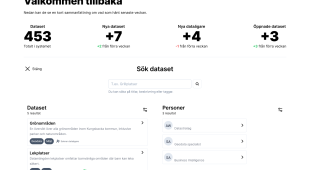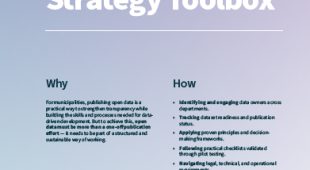The Municipality of Kungsbacka and the University of Gothenburg have designed, developed, and evaluated an Open Data Strategy Toolbox, that helps municipalities to move forward within the area of open data. The Toolbox helps review internal datasets for municipal users. It increases the transparency of current internal datasets and shows their state in the open data publication process. Once implemented by a municipality, it will give a quick overview of a municipality's current state of open data. The tool is available at GitHub.
The challenge
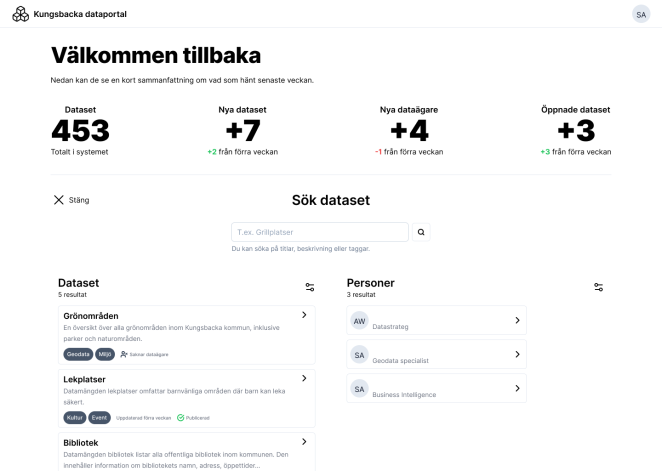
Start page of the tool, that shows the total number of datasets, new datasets, new data owners, and open datasets since last week. The screen shot also show how the search function works.
Sweden has a long-standing tradition of transparency and openness in governance, which has paved the way for the ambition to move forward within the area of open data. The Swedish government has recognized that making public data available to citizens and businesses can drive innovation, economic growth, and improve public services. In addition, the country benefits of a well-developed technology sector and highly skilled workforce.
The Municipality of Kungsbacka is responsible for issues affecting major parts of the lives of the citizens and provides services to businesses in the region. Embracing the concept of open data is highly advantageous from this perspective. Nevertheless, the Municipality faced the challenge of navigating the complexities associated with becoming a dedicated provider of open data.
How did Data for All help?
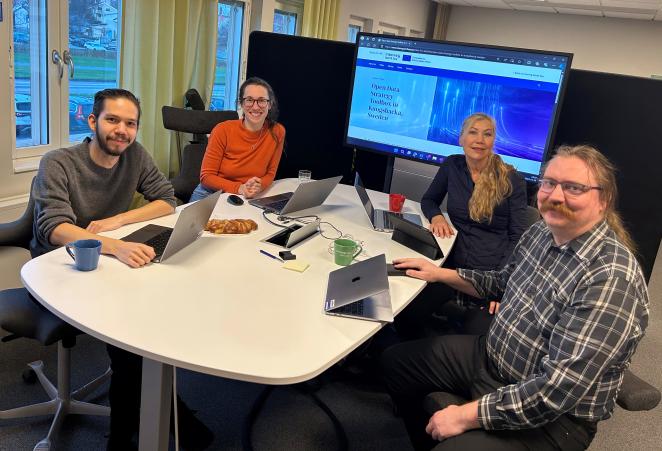
The Municipality of Kungsbacka and the University of Gothenburg jointly developed an Open Data Strategy Toolbox to support municipalities in their open data journey. The digital tool is designed to support municipalities in structuring and managing their open data efforts. The tool helps identify data owners, track the status of datasets, and support decision-making related to data publication and governance. We have completed the final testing and evaluation of the digital tool for managing municipal open data. The tool is available to other organizations at GitHub.
The pilot has strengthened the municipality’s capacity to work with open data, both technically and organizationally. Kungsbacka has started to publish datasets, for example related to outdoor activities and sustainability, which gave us practical experience and helped raise awareness internally. Working hands-on with publishing datasets has also highlighted strategically important issues related to open data, which has made it easier to develop shared working methods and routines. The pilot has gathered key actors across departments in Kungsbacka, fostering a shift in mindset where data is seen as a strategic asset.
Through collaboration, The University of Gothenburg has developed a digital tool designed to support municipalities in structuring and managing their open data efforts. This provided valuable insights to into user needs and organizational processes. The pilot also revealed key challenges such as unclear data ownership and the need for better governance structures. As a result, Kungsbacka initiated three internal pre-studies on master data, geodata, and open data, to prepare for long-term development.
For more details please check: Open Data Strategy Toolbox: Pilot Strategy and Action Plan.
Participating partners
Kungsbacka is a growing municipality located on Sweden's west coast. Through open data, it aims at creating and running digital services in all its areas of responsibilities, including opening new opportunities for businesses locally and internationally.
Kungsbacka is already a member of two regional networks of Swedish municipalities that promote open data and create common standards. It intends to share the lessons learned in the Data for All project with these two networks.
Additionally, Kungsbacka has started working with open data on various topics (e.g., traffic and road work, information ofsocial and sport facilities) and wants to extend and deepen its utilisation.
The University of Gothenburg (GU) is a multidisciplinary university that dates back to 1891. It consists of eight faculties and 38 departments, as well as a large number of research centres that span across several academic disciplines.The Department of Applied Information Technology is Sweden's premier department for studies of the digitalisation of society. It also hosts the Swedish Center for Digital Innovation. It identifies the challenge of digital government as a relevant domain for the public sector, and is actively involved in over 20 projects targeted at developing new methods and knowledge for municipalities, regions and agencies, in close collaboration with industry and the association for Municipalities and Regions.
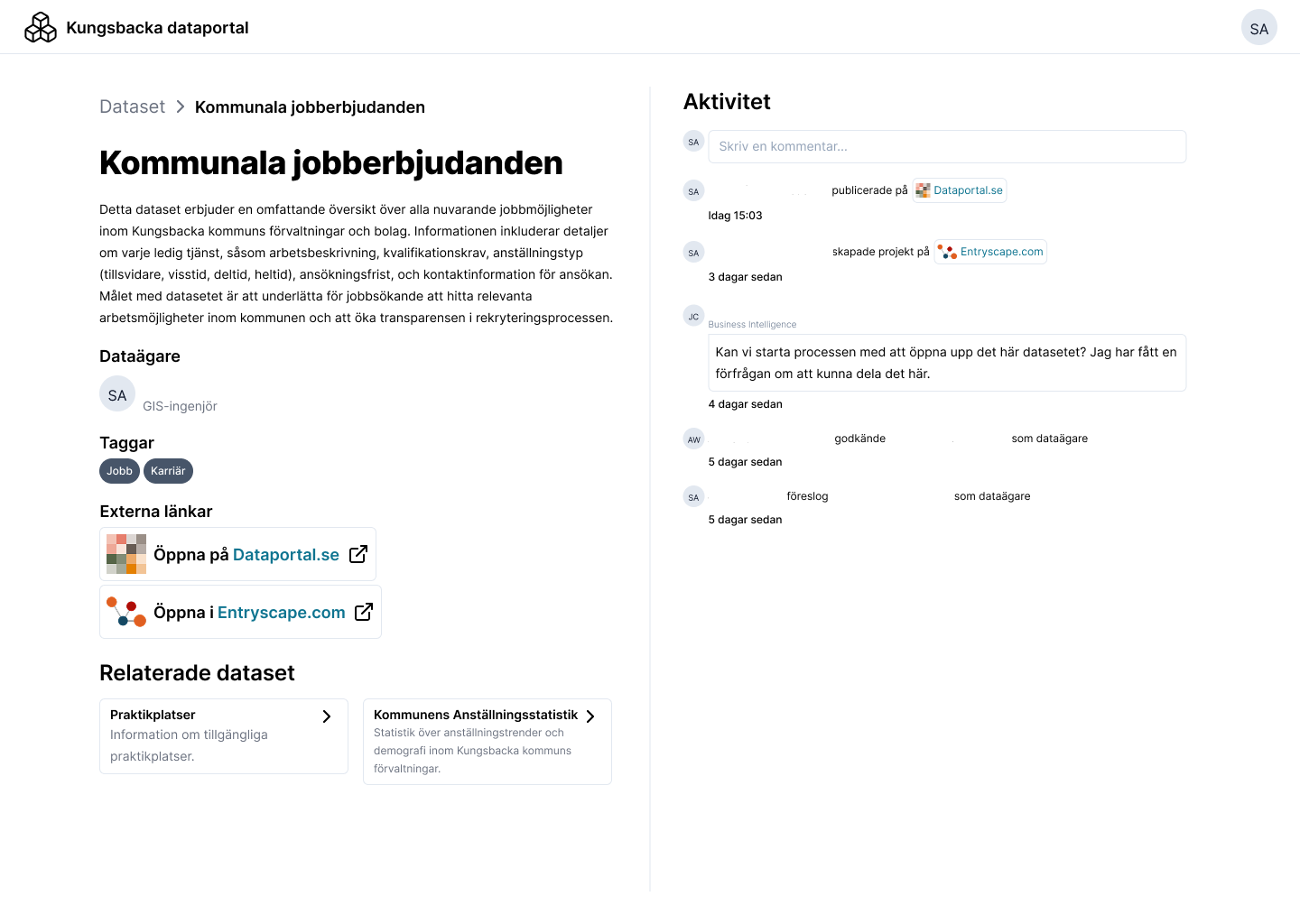
Subpage, overview of a dataset in the tool. Besides a description of the dataset, the page also shows the data owner, related datasets, activity/discussion about the dataset and external links (i.e. to the national data portal).
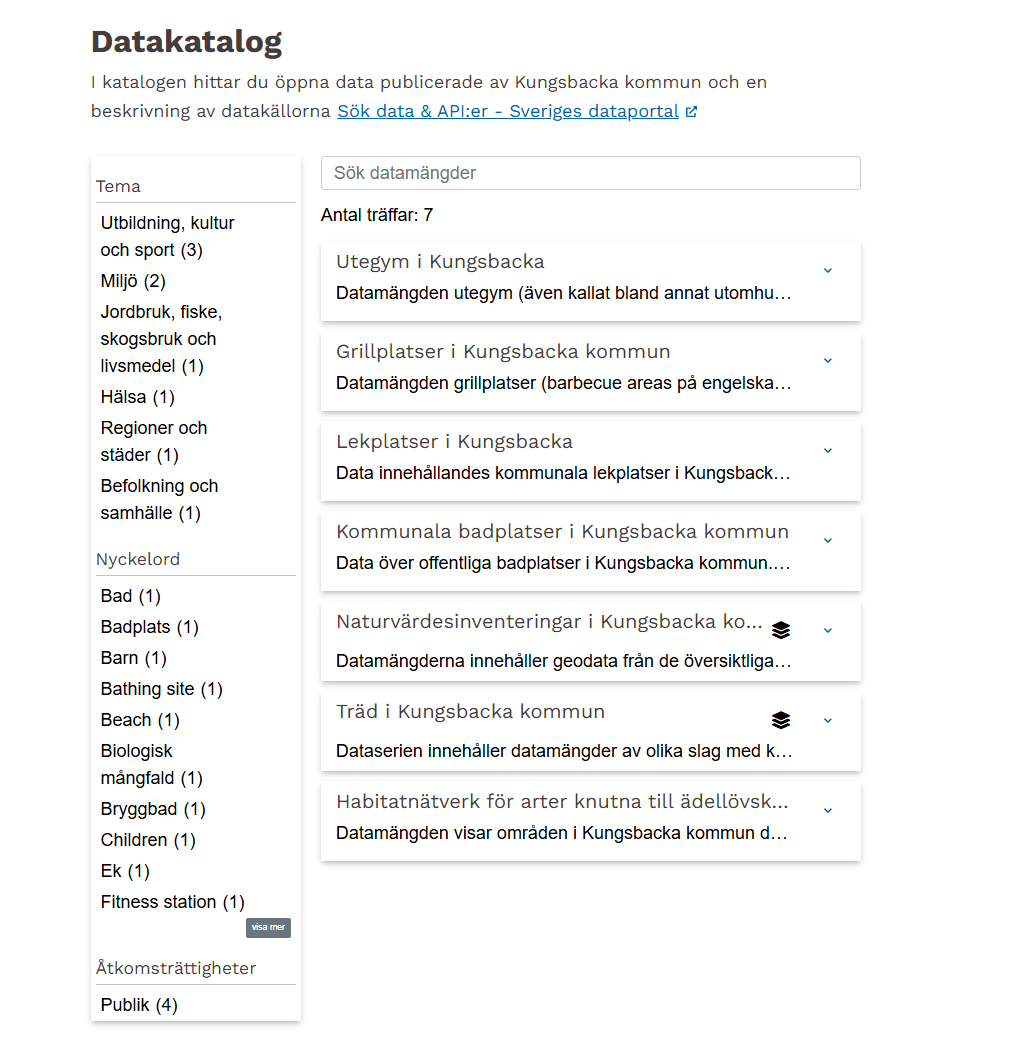
Screen shot from Kungsbacka.se showing datasets that have been published during the project period

